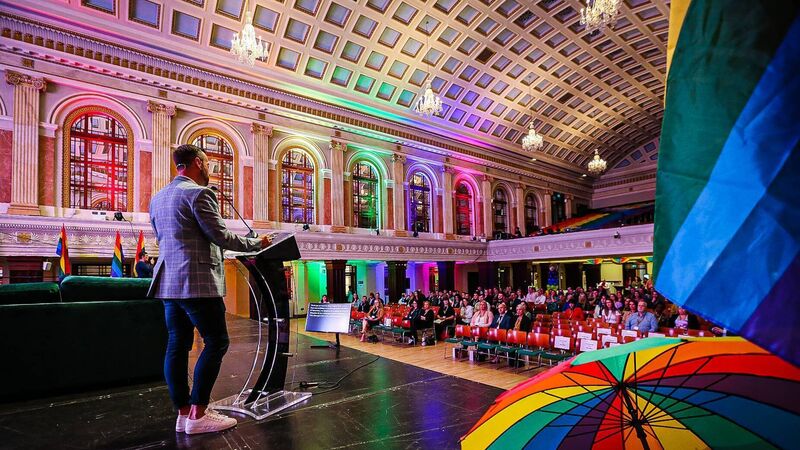Trans women are being 'demonised', Cork Work With Pride conference hears

Trans women are being demonised as a threat to other women in places like female-only bathrooms to create fear and division, a Cork Pride conference heard.
Speaking at the Work With Pride event at Cork City Hall, trans advocate Saoirse Mackin said that figures show that Republican Congressmen in the US, a cohort known to peddle this fear, are in fact many times more likely to assault someone in a bathroom.













